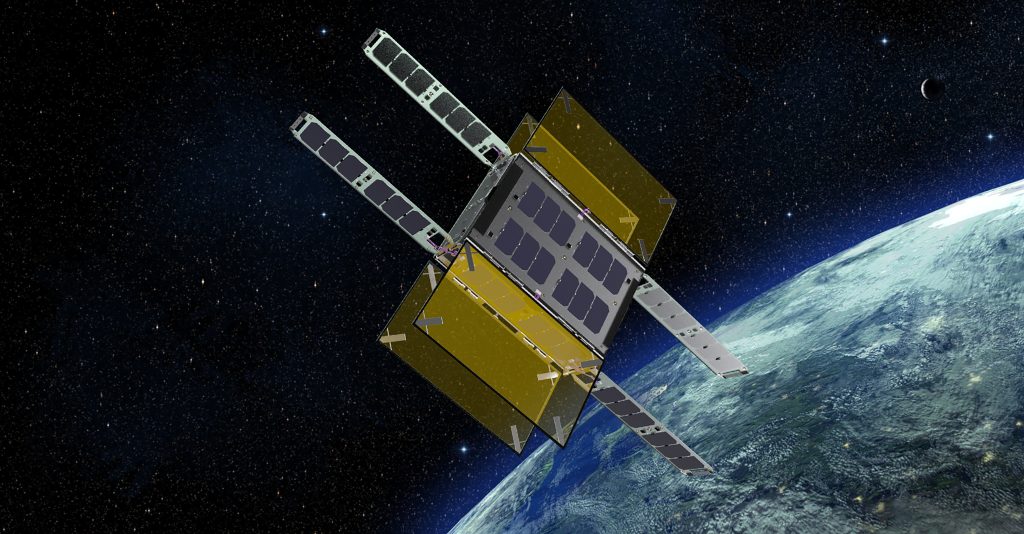Breakthrough for firm working to protect satellites from ‘space bullets’

A company working on a pioneering system to save the space industry billions every year has successfully demonstrated the operation of its technology in orbit.
ODIN Space is working on a system that will prevent space debris from destroying satellites – a problem which is forecast to cost the space sector around $3 billion annually by 2030.
Pieces bigger than 10cm can be tracked and avoided, but over 99 per cent of debris is so small it is invisible to existing tracking technology.
This makes the sub-centimetre debris, known as ‘space bullets’ because of the extreme damage they cause, the single greatest threat to space-based infrastructure.
ODIN Space, which has a base at the University of Leicester’s Space Park Leicester, was founded to fill this critical gap in the space debris ecosystem and its demo test unit has now been successfully demonstrated in orbit during the recent SpaceX Transporter 8 mission.
James New, CEO and Co-founder of ODIN Space, said: “It’s been a nervous few weeks for us since the Transporter 8 launch, but we’re excited to see our demo unit transmitting data.
“It’s an amazing milestone in our short history and for the future of detailed mapping of orbits.
“By understanding how even the smallest debris behaves, we can provide satellite operators, orbital service providers, insurance companies and anyone involved in the sector, with the mission-critical situational awareness data they need for the success of their mission and the long-term operational safety of their assets and revenue. “
ODIN Space’s demo unit had been calibrated to start testing at an ultra-high sensitivity, so that even any vibrations from the satellite would be picked up.
The data captured by the demo unit marks an important step in creating vital information around sub-cm orbital debris.
It brings the company a step closer to producing its fully commercial sensor, capable of mapping debris between 1cm and 0.1mm, tracking its size and location.
It will also record data that has never been captured before, the speed and trajectory of the debris.
This information will enable ODIN Space to build dynamic models of how even the smallest pieces of debris are behaving and provide anyone operating in space with critical space situational awareness insights.
Earlier this year, ODIN Space became a member of the European Space Agency’s Business Incubation Centre for the United Kingdom (ESA BIC UK) programme at Space Park Leicester.
The ESA BIC (UK) at Leicester is a route for SMEs to develop technologies for the space industry and it is providing financial support and expertise to accelerate the development of ODIN Space’s technology and commercial offering.
Commercial Manager at Space Park Leicester Vinay Patel said: “We’re thrilled about the success of ODIN Space’s demo.
“With as many as 100,000 satellites and hundreds of billions of dollars’ worth of space-based infrastructure expected to be in orbit by 2030, understanding how debris is behaving is crucial for satellite operators, orbital service providers and insurance companies.”
Organisations which join ESA BIC (UK) receive a programme of technical support from the University of Leicester’s leading-edge Space and Earth Observation scientists and business support from Entrepreneurs in residence.
Entry to the programme is through a competitive tender process and the deadline for the next round of applications is September 18. For more information, visit https://dev.space-park.co.uk/innovation/esa-bic/
To learn more about ODIN Space, visit https://www.odin.space.


